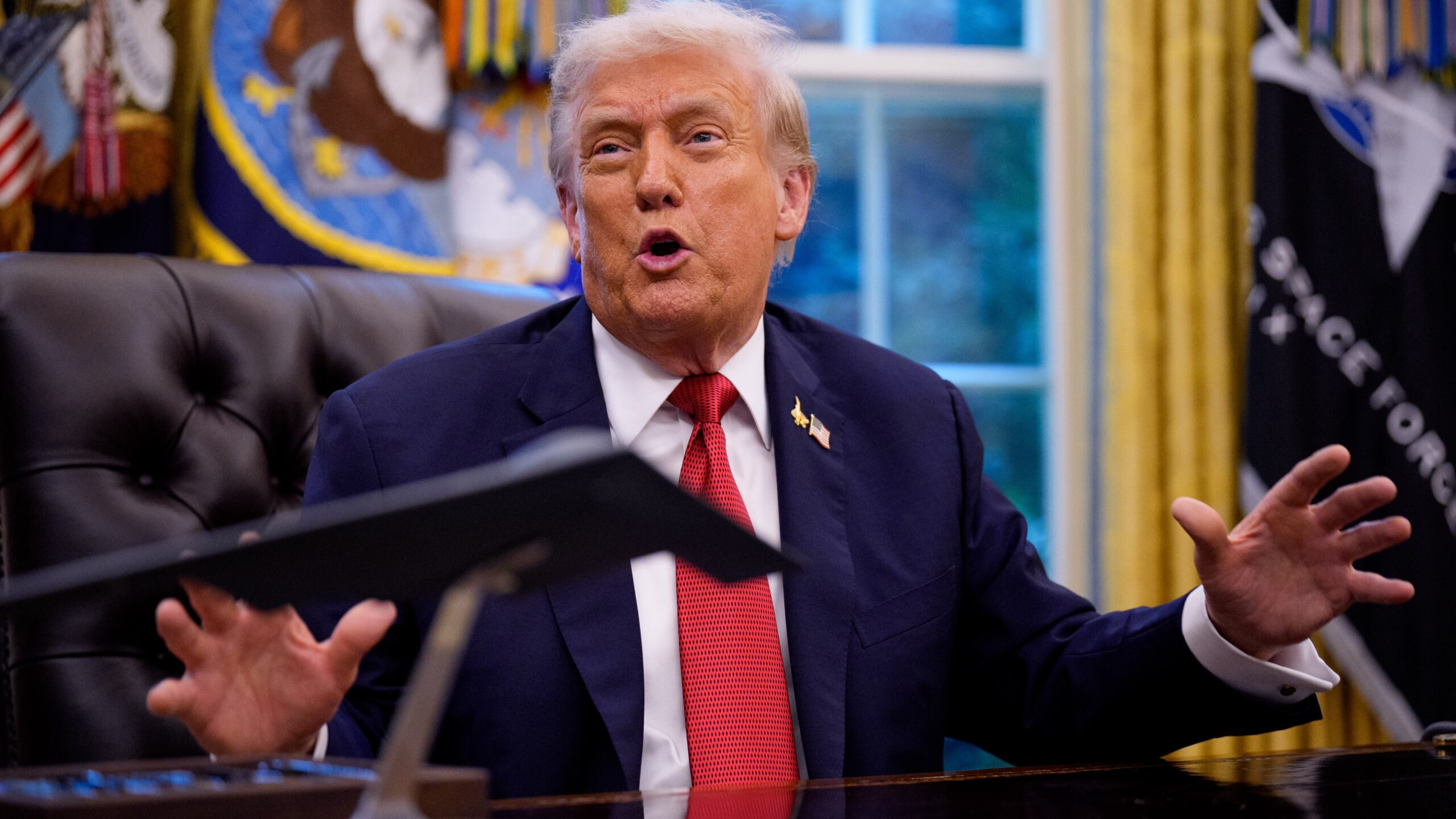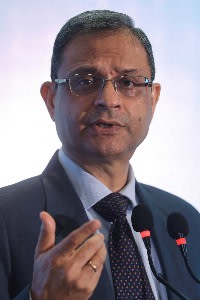
Donald Trump’s “unpredictable” policymaking and immigration crackdown have prompted some multinational businesses to consider relocating staff from the US or diverting activity away from the world’s largest economy, according to executives and their advisers.
The chaotic rollout of new rules on visas for highly skilled workers and moves against his political opponents have reignited boardroom concerns first triggered by Trump’s on-again, off-again tariffs this year.
Business leaders also cite a lack of clarity in executive orders for increasing risks in their American operations, with some in Europe saying they have pulled back US investments.
“It increases the cost of capital,” said a senior executive at one European multinational. “You invest more for the short term, do the strict minimum and it means less investment in the US ultimately.”
The bout of concern comes at a time when the Trump administration is betting the president’s policies, including cutting regulations and erecting trade barriers, will ignite a boom in business investment and employment.
Trump has cited record highs for the US stock market as a sign that executives back his views.
“Two things can be accomplished at the same time,” said White House spokesperson Kush Desai. “The administration can make America the most dynamic, pro-business economy in the world while prioritising American workers.”
The administration’s immigration clampdown is forcing companies to make contingency plans and raising the relative attraction of moving jobs to offices outside the US, advisers say.
“This administration is essentially anti-immigration,” said Bruce McIndoe, founder of McIndoe Risk Advisory. “Instead of fighting that and waiting for the next shoe to drop, companies are looking at ways to build capability elsewhere.”
The administration on September 19 said it would impose a $100,000 fee for H1-B visas, widely used by tech companies for foreign-born engineers and other skilled employees.
Visa-holders who were overseas were ordered by their companies to return immediately to the US to avoid the fee, before the administration eventually clarified it would only apply to future applications.
Lauren Mullen, US immigration attorney at Vialto Partners, which advises companies and their employees on visa issues, said companies are now focused on the “cost analysis, whether to pay the fee or relocate the talent, either in the short term or in the long term”.
She said that the policy shift, the largest so far by the administration in relation to legal migration, had muddled calculations for business about when to sponsor employees on a journey to US citizenship. Companies also have to contend with a rise in reported visa denials, she said, and a new “tone and tenor” on immigration that could affect expatriate staff.
“What was previously predictable, albeit with no guarantees, now feels unpredictable,” she said.
A senior consultant who speaks to multinational chief executives said the new H1-B fee would “give more of a boost to global capability centres and affect how and where global business gets done”.
The president also sparked confusion on Thursday by announcing on social media that he would impose new, high tariffs on goods ranging from branded drugs to bathroom vanities. The administration did not immediately follow up with critical details of how they would be implemented.
While corporate leaders almost uniformly shy away from public criticism of the Trump administration, in private many are scathing.
Executives in different sectors cite different examples of unpredictable policymaking — from curbs on the use of the painkiller paracetamol despite the absence of settled science to shutting down wind farm projects that are already under construction — and say it adds up to a reduction in the attractiveness of the US market.
“Even a year ago we would have said the US was a safe place to be, and we were very happy to be gaining ground there,” said a senior executive at a big European energy company. “Our vision has completely changed.”
Businesses in the energy sector were shaken by Trump’s intervention to stop an offshore wind project led by Ørsted, and now fear the government could intervene elsewhere. “We’re going to finish the projects we were working on but we will be limiting our engagement,” the executive said.
Some car executives also say they are becoming nervous about the heavy reliance on the US market. “It’s no longer an age where we can depend on the US and China as the main pillars and we need to diversify into other markets,” said one adviser to a Japanese carmaker.
McIndoe said business leaders were concerned about Trump’s use of executive power to attack perceived opponents. “The underlying scaffolding is being dismantled,” he said. “How does Congress operate? What are the checks on the president? What’s happening with justice in the US?”
His firm had helped one large European company game out the effects of a hypothetical erosion in the US dollar’s status as a reserve currency, McIndoe said, driven by China’s pressure to force trading partners away from the dollar and the “debt and governance” issues in the US.
While the dollar has fallen sharply this year, other barometers of market nerves remain more muted, while M&A and capital markets activity has been heating up. There have also been scant signs of investors shifting away from US government debt at pace as some had feared earlier in 2025.
Many corporate leaders argue concerns about the strength of US institutions are overblown and that obsessing over events in Washington can paralyse decision-making when companies need to be readying themselves for technological change.
Eric Kutcher, head of McKinsey’s North America business, said his conversations with CEOs had gone from 80 per cent focused on Washington earlier this year, at the peak of tariff uncertainty, to less than 20 per cent now.
“That doesn’t mean that there aren’t moments where something occurs, but I am yet to see them stop and say, this is going to really change my direction,” he said.
“It is easy to get caught up in the headlines, but they are not moving the needle as much as a 25 basis point decline in interest rates,” said another consulting firm leader, pointing to the booming US equity market and a revival in M&A activity.
The senior consultant who speaks to multinational chief executives noted a divergence between different regions. “When I go to Latin America and Asia, their view is, we’ve lived with volatility in our own markets, and they are not phased. The biggest concern that I hear is from Europe. They feel everything has been thrown up into the air.”
Additional reporting by Ashley Armstrong, Patrick Temple-West, Ryohtaroh Satoh, Rachel Millard and Adrienne Klasa


